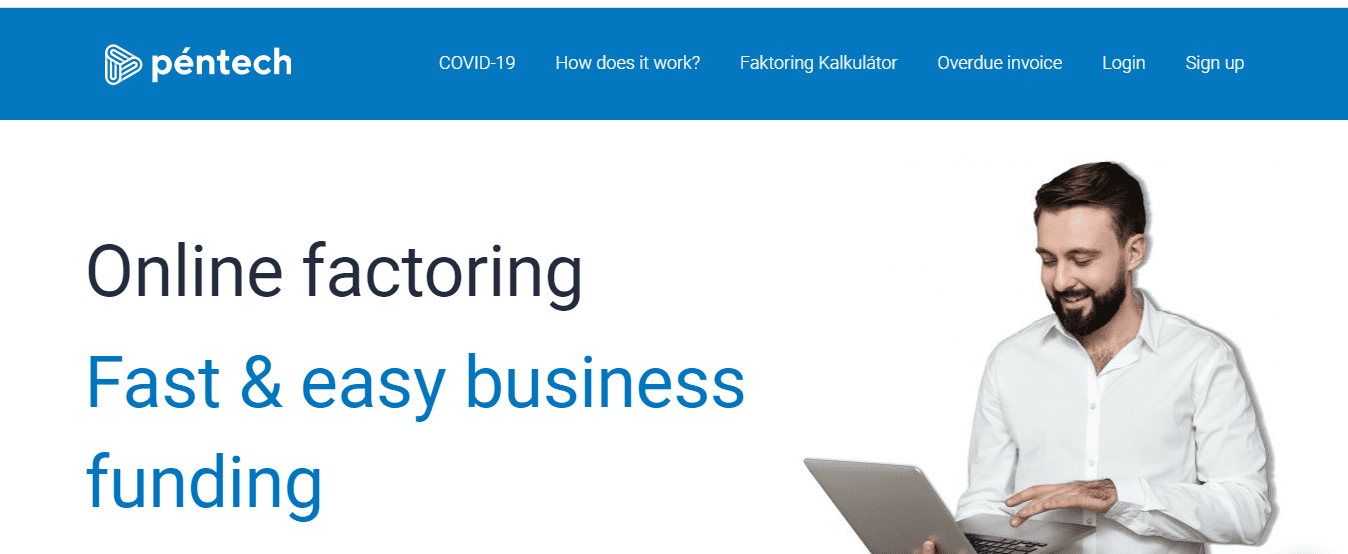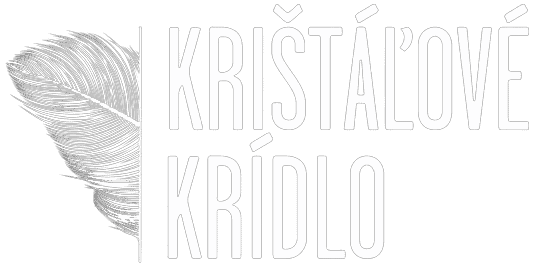The COVID-19 pandemic and the expected economic downturn will definitely shape the global fintech landscape. This report by Rosenblatt Securities predicts a frightening $76B drop in the total market value of the world’s 58 fintech unicorns. The fintech scene in Hungary is still in its early days but it has been growing rapidly over the last few years. Since we opened our newest office in Budapest a year ago, we became a part of this vibrant ecosystem and connected with many local players. We hopped on a Zoom call with some of them to learn how they deal with the current situation and hear their thoughts and predictions about the upcoming trends, challenges, and potential opportunities.
The local fintech community had some good years behind its back. One of the most notable success stories was the acquisition of IND Group by Mysis in 2014. Since then, we have seen a growing number of fintech startups getting both local and regional traction with notable investments. Our friends from BoosterLabs identified 48 innovative Hungarian-founded fintech companies in their study last year. According to the research of the Magyar Nemzeti Bank (the Central Bank of Hungary), altogether nearly 110 Hungarian and foreign-owned fintech companies are represented in the domestic market, the vast majority of them, nearly 90 percent, provide B2B services. The entire sector employed nearly 5,000 people in 2019 and their sales revenue reached almost HUF 120 billion.
Nearly every bank runs innovation programs and seeks collaboration with startups in Hungary. Magyar Nemzeti Bank launched its Innovation Hub in Q1 2018 and its Regulatory Sandbox framework at the end of 2018 in order to ensure a safe environment for testing innovative financial solutions. In October 2019 the central bank also published its FinTech Strategy including 24 recommendations to improve the supportive environment and boost the digitalization of financial services. In addition, at the beginning of 2020, it conducted a survey of the Hungarian banking sectors’ digital development to gain a comprehensive picture of the current state of financial digitalization.
TransferWise, Europe’s most valuable fintech startup, also opened an office in Budapest in 2017. Now employing over 300 people it has become their third-largest office after London and Tallinn.

The meetup scene was buzzing lately in Budapest and there was a growing number of conferences connecting the local and regional fintech community. The cancellations of events and community gatherings are one of the first hits that impacts the community. We were looking forward to the first-ever Budapest Fintech Summit organized by MNB, where our CXO, Matej Ftáčnik was scheduled to participate in a panel talk. The organizers were one of the firsts taking precautionary steps by announcing the cancellation at the end of February.
Péter Fáykiss, Director of Digitalisation Directorate at the MNB said:
‘Due to the given epidemiological situation, MNB decided to postpone the conference to protect the health of the participants. We hope that the global and domestic efforts will bear fruit soon, providing us an opportunity to communicate the new date of the Budapest FinTech Summit as soon as possible. We strongly believe that a large-scale conference with internationally renowned professionals can contribute to the development of the Hungarian Fintech sector and the digital transformation of incumbents through knowledge sharing and establishment of new business relations.’
He also added that in situations like the current one, the role of digitalization is even more important and it most likely acts as a catalyst for the introduction of innovative solutions. The MNB has just announced – in an online press conference – for the first time their FinTech and Digitalization Report on the evolution of the active fintech firms in Hungary and the digitalization level of the Hungarian banking sector. Based on the results of the Report, the domestic banks are already providing fully digitally accessible financial services in some product segments, but there is still room for improvement. The Hungarian fintech sector has been able to expand dynamically in recent years and the MNB will continue to support financial innovation and a favorable environment for the development of the industry.
Local banks showed a great interest in seeking partnership opportunities with startups. Almost all major banks offer accelerator programs and OTP Group’s CVC fund PortfoLion is one of the most successful venture capital funds in the country. One of the first local fintech accelerators was MKB Bank’s Fintechlab which has already incubated 22 startups, many of which relocated to Budapest from other regional hubs for the program. They also organize several meetups and conferences to boost the ecosystem, including the Budapest Design Summit.

We discussed the current situation with Mary Alcantara, Deputy Managing Director at MKB Fintechlab:
‘Some of our events now have to be postponed or shifted to online platforms, but all of our core activities will continue. MKB Fintechlab has already extended the scope of its partnership program to include later-stage scaleups and companies before the crisis began. We have always been known for our work with startups, but we also built up a Design Competence Center and support the digital transformation of MKB Bank. In the fintech community, we’re all just trying to stay positive. We collaborate a lot more these days and are bringing in new tools to support a faster-paced, connected way of work inside the bank. When you are an innovator, you see opportunity in every challenge – and there are definitely plenty of challenges in this new situation.’
Mary believes that founders must prepare for prolonged challenges, such as longer sale cycles and decreased demand. She predicts that nonessential businesses will have greater difficulty persevering during this economic change, but solutions that increase remote productivity or ease financial burdens on customers could see a boost.

MKB Fintechlab has just gone live with their pilot project Linistry Digital Queuing. They were in discussions with the startup since January, but the pandemic situation actually resulted in accelerating the process, as MKB Bank wanted to quickly respond with a service that would benefit its customers. They made the service available in days to allow customers to book appointments online without queuing or waiting. This digital queuing feature is a huge help in following the recently announced social distancing regulations, minimizing time spent in branches.
Another key gathering of the local scene is the Fintechshow organized by FintechZone, a popular local fintech blog and knowledge center. The event was also postponed from the original date, 21 April 2020. FintechZone and MKB Fintechlab were also co-organizing the Hungarian edition of Hack the Crisis, an online hackathon to invite the tech community to build solutions for the socio-economic impact of the pandemic.
Teams could participate in the hackathon with creative projects for the following issues:
- Save lives
- Save communities
- Save small businesses
- Save education
We talked to Gábor Lemák, Co-founder of FintechZone and Fintechshow, also one of the organizers of the Hack the Crisis Hungary event, asking his opinion on the possible industry impact of the crisis:
‘As a result of the coronavirus outbreak, many digital financial services have been launched during the last three weeks. The measures taken due to the epidemic have explicitly accelerated the appearance of digital projects. The restriction of personal customer services also contributed to the faster deployment of new applications, like digital contracting solutions and contactless payment options.
From my experience, digital channels are more valued lately in the bank sector, resources are reallocated to this area. Fintech solutions that offer a remote client identification, or fast-to-implement electronic payment solutions to businesses, may now be in a favorable position. Open banking (PSD2) methods can also provide help against the spread of the virus, fintech companies that deal with data-driven solutions can now be in the spotlight. We were also glad to see some related projects during the Hack the Crisis event this weekend.
At the same time, there are several domestic fintech companies that could find themselves in a difficult position due to the suspension of investments. In the upcoming months, many projects that will only pay off in the long run, will probably be on hold. We are confident that the fintech industry will find its way through this period and there will be a number of new solutions that we can present on our FinTechShow 20/20.’

Nobody really knows what is going to happen and how bad the economic crisis will be. One thing is sure, every crisis is also an opportunity. We have to adapt to the situation, make important measures and find solutions for unprecedented problems. We love the response and initiatives taken by some of the local fintech members.
Mr Coin, CoinCash and InLock, some of the most recognized companies in the local crypto community have joined forces and launched BitcoinAdomány. This charity site aimed at helping doctors, nurses, and all healthcare workers who are fighting for coronavirus patients. The platform allows crypto donations where the conversion is free of charge. The organizers assure the community that the full amount will go to the foundation by running an amount tracker on the site in order to make the process more transparent.
There are fintech solutions which might even experience an increase in demand and have the ability to create opportunities from the turbulent market dynamics and changing customer behaviors
TrustChain is an up-and-coming startup that has just raised its recent round to continue to build their platform that allows entrepreneurs, companies, and other businesses to create, negotiate, and sign documents on their devices in a digital, yet legally secure way in 38 countries. They prefer to define themselves as a RegTech company as they are helping to manage regulatory processes within the fintech sector through digital technology.

An important factor that differentiates them from their competitors is that every contracting party has to go through a remote identification procedure before starting to use the contracting platform, where a Qualified Electronic signature will be linked to their account. The N:N business model they operate with is based on linking customers and suppliers together in a middle platform. This online contracting application allows businesses to manage any kind of document which requires authentication from different sides. Basically the platform helps companies to make formal binding agreements with legal security in the digital space. Since they have been on the market, they have already raised EUR 1.4M for their unique project.
‘The number of our customers has tripled since the outbreak. Legal digitalization is a new innovative area where clients are usually extra cautious. The secure authentication enables our users to sign documents like working contracts, company documents, investment contracts, trade agreements, agency contracts, purchase agreements in a safe way when contracting/signing parties are afraid to meet or not able to meet personally because of distance. Lately, we have converted our most important features free in order to support all local businesses whose cases are on hold because of the emerging health crisis.’
– said Gergely Romhány, CEO and Co-Founder of the Company.

PénTech developed a smart factoring system providing financial online support to businesses. This allows them to facilitate the lending process for small and medium-sized enterprises. They have been on the market since October 2019 helping out businesses with their liquidity issues.

In the current situation of loan moratorium in Hungary, the lending process has become even more challenging for small and medium-sized businesses. Many of them are trying to get external support in order to secure their liquidity. Unfortunately, there are also companies among those who have not faced such a need before the epidemic.
Benjamin Berényi, CEO & Co-founder at PénTech added:
‘Factoring has industry limitations these days, additionally, the risk-taking of financial institutions has been reduced by the crisis. We try to help all businesses who reach out to us with a request, paying special attention to reducing interactions and facilitating the contracting process. On a voluntary basis, we decided to provide financial advice to small and medium-sized companies. In many cases, companies do not need external funding, only some guidance, and ideas on how to maintain their businesses in the current situation. I know it sounds like a cliché, but we really believe that every crisis has a potential for growth. Changes in the culture of work and progress towards digitization have already been demonstrated.’

Our team at Vacuumlabs will most certainly face great challenges in the next period, just like others in our industry. All the projects we manage have to be adjusted to the rapid change in market demand while identifying new opportunities and reacting quickly will probably have even greater importance than before. We are planning on growing with the Budapest ecosystem and use our capabilities to adapt and build technology-enabled solutions that take us forward.
We trust our people who have already shown in their swift transition to remote work and in their daily collaboration that all difficulties can be overcome with the right team. Sharing ideas and information, rethinking our internal communication, supporting each other’s work even more than before, these are all developments we will continue to profit from in the future.
‘I am proud of the Vacuumlabs team for managing the switch to remote work in just one day. Usually, we have an active social life at the offices and I am sure many of us are missing it. Due to the pandemic, the focus has shifted all around the world and we also need to adjust our projects and contribution correspondingly. This is the reason why I considered taking part in the Hack the Crisis initiative as a mentor in Slovakia, guiding ideas that can have a huge impact these days. We have also submitted our project proposals in both countries (Slovakia and Hungary) hoping that we can provide some input to solving recent issues caused by the crisis. At the social level, in collaboration with biologists, we are working on a study in order to increase the number of tests in Slovakia.’
– said Matej Ftáčnik, our CXO at Vacuumlabs.











